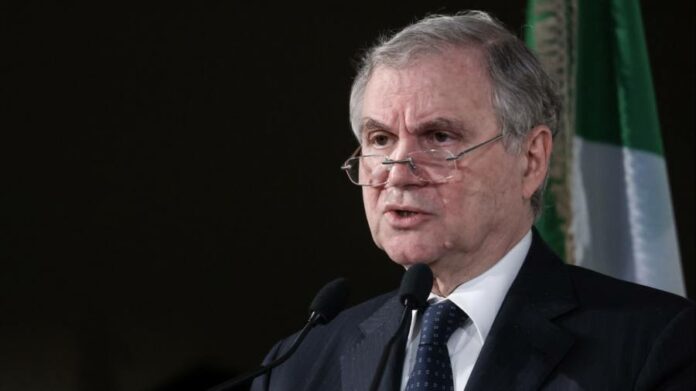The head of Italy’s central bank has exposed a growing rift at the European Central Bank by criticising comments from fellow eurozone rate-setters about how much higher interest rates will need to rise to tame inflation.
Ignazio Visco said in a speech in Rome on Wednesday that he did not “appreciate statements by my colleagues about future and prolonged interest rate hikes” as tensions grew over the pace of monetary policy tightening. The ECB has signalled it is likely to raise its deposit rate by half a percentage point to 3 per cent at its meeting next week. It also said no prior commitments would be made to any further moves.
But some members of the ECB’s rate-setting governing council have reacted to higher-than-forecast inflation data in February and wider signs of economic resilience to say rates are set to rise much higher in the coming months.
Robert Holzmann, Austria’s central bank governor, said this week he expected the ECB to raise rates by half a percentage point at each of its four meetings between now and July, which would take its deposit rate from 2.5 per cent to 4.5 per cent. That would be higher than the 4 per cent peak for the benchmark rate priced in by futures markets.
Highlighting the war in Ukraine, Visco said the “serious geopolitical situation makes it difficult to forecast future macroeconomic trends”. Monetary policy needed to be “prudent and driven by the data . . . so as to bring inflation back to 2 per cent in the medium term without putting financial stability at risk and minimising the effects on the fragile economy”, he said.
Italy’s central bank governor is one of the more dovish members of the ECB council, many of whom fear the more hawkish rate-setters will use the persistently high inflation data to press for a commitment to further rate rises. Fabio Panetta, the most dovish ECB board member, last month warned that pre-committing to future rate rises would be the policy equivalent of “driving like crazy at night with our headlights turned off”.
Eurozone inflation has fallen for four consecutive months since hitting a record 10.6 per cent in October. But it fell less than expected to 8.5 per cent in February, while core price growth — excluding energy and food — hit an all-time high of 5.6 per cent.
Economists are divided on how fast inflation will fall and whether the eurozone will this year enter a technical recession, defined as two consecutive quarters of contracting output. Recent surveys of businesses and consumers point to resilient growth, but data showing weak retail spending and business investment indicate a downturn is likely.
“The evidence on the health of the eurozone has been mixed so far,” said Franziska Palmas, economist at research group Capital Economics. “But we still think that depressed real incomes and rising interest rates will weigh heavily on consumption and investment, pushing the eurozone into recession.”
The eurozone economy stagnated in the fourth quarter of last year, according to official figures published on Wednesday that were revised down from January’s flash estimate of 0.1 per cent growth after cuts to estimates in Germany and Ireland.
A drop in household spending and lower business investment were offset by increases in government spending, the trade surplus and inventories, according to Eurostat, the EU’s statistics office.
But Melanie Debono, economist at Pantheon Macroeconomics, said the quarterly data was still better than was expected in December, “so it does more for ECB hawks’ calls to continue on a steep tightening path than for the doves’ call for prudence”.






